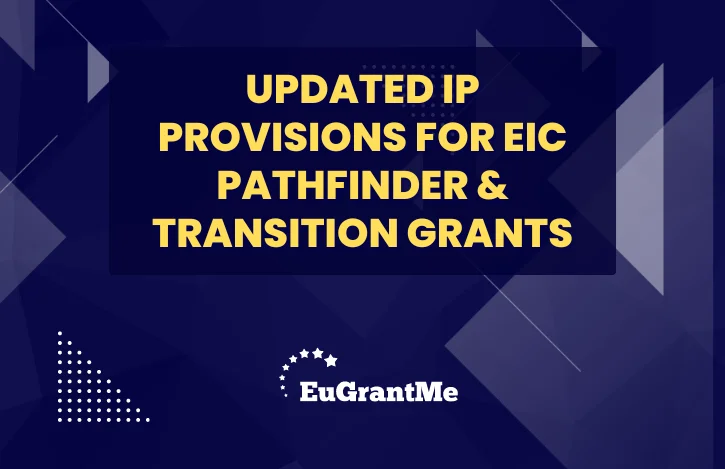In the ever-evolving landscape of research funding, understanding intellectual property (IP) provisions is paramount for researchers seeking support. The recent updates to the IP provisions for EIC Pathfinder and Transition Grants have significant implications for innovators. In this comprehensive guide, we delve into the nuances of these changes and their impact on project execution, collaboration, and commercialisation strategies.
Evolution of IP Provisions in Research Funding
The importance of intellectual property (IP) provisions in research funding cannot be overstated. These provisions govern the ownership, management, and exploitation of intellectual assets arising from funded projects. With the recent updates to the IP provisions for EIC Pathfinder and Transition Grants, researchers are presented with new opportunities and challenges in navigating the complex landscape of IP rights and responsibilities.
Understanding the Updates: Key Changes and Implications
The updated IP provisions for EIC Pathfinder and Transition Grants introduce several key changes that researchers need to be aware of. These changes may affect various aspects of project execution, including IP ownership, management, and exploitation rights. By understanding the implications of these updates, researchers can better position themselves to leverage their intellectual assets for maximum impact and commercial success.
Navigating IP Ownership and Management
One of the primary considerations for researchers is the ownership and management of IP generated during the course of the project. The updated provisions clarify the rights and responsibilities of project participants regarding the ownership, protection, and exploitation of IP assets. By proactively addressing issues related to IP ownership and management, researchers can avoid potential conflicts and ensure a smooth transition from research to commercialisation.
Exploiting IP Assets: Strategies for Success
Maximising the value of IP assets is essential for successful commercialisation and technology transfer. The updated IP provisions provide researchers with greater flexibility and autonomy in exploiting their intellectual assets. By adopting strategic approaches to IP commercialisation, such as licensing, spin-offs, and strategic partnerships, researchers can unlock new revenue streams, attract investment, and accelerate the translation of research outcomes into tangible products or services.
Collaborative Research and IP Considerations
Collaboration is integral to the success of research projects, particularly in the context of EIC Pathfinder and Transition Grants. The updated IP provisions provide guidance on managing IP rights in collaborative research settings, including consortium agreements, joint ownership, and data sharing arrangements. By establishing clear protocols and agreements upfront, researchers can foster productive collaborations while safeguarding their IP interests.
The Role of IP in Innovation Ecosystems
Intellectual property plays a crucial role in fostering innovation ecosystems by incentivising investment in research and development and facilitating technology transfer and commercialisation. The updated IP provisions for EIC Pathfinder and Transition Grants aim to strike a balance between incentivising innovation and safeguarding the interests of project participants and stakeholders. By promoting a conducive environment for IP creation, protection, and exploitation, these provisions contribute to the growth and competitiveness of the European innovation landscape.
Conclusion: Navigating the Complexities of IP Provisions
In conclusion, the updated IP provisions for EIC Pathfinder and Transition Grants herald both opportunities and challenges for researchers. By understanding the implications of these changes and adopting proactive strategies for IP ownership, management, and exploitation, researchers can maximise the value of their intellectual assets and enhance the impact of their research projects. Navigating the complexities of IP provisions requires careful consideration and collaboration, but the potential rewards—both economic and societal—are well worth the effort.
At EuGrantMe, we are passionate about fostering innovation and empowering ambitious minds to flourish. Our mission revolves around providing top-notch grant writing services for the EIC Accelerator and Horizon grants in Europe, enabling our customers to unlock the full potential of their ground-breaking ideas.
Do you have a project to turn into reality?
Contact us!


